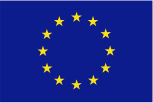
Civil society in EU accession countries
Guide to advocacy
What is IPA?

Frequently asked questions about the Instrument for Pre-Accession Assistance

1. What is pre-accession assistance?
The EU provides pre-accession financial aid to EU candidate countries (currently: Iceland, Macedonia, Montenegro, Serbia and Turkey) and to potential candidates (Albania, Bosnia and Herzegovina and Kosovo under UN Security Council Resolution 1244/1999).
This financial assistance is made available both to individual and multiple beneficiaries. It is intended to help these countries introduce the necessary political, economic and institutional reforms to bring them in line with EU standards.

2. What kind of reforms are needed in (potential) candidate countries?
The reforms necessary for EU membership also intend to improve the lives of citizens in the beneficiary countries. A key aim of assistance is to support political reform, in particular institution building, strengthening the rule of law, human rights, protection of minorities and the development of civil society.
The assistance aims to improve quality of life in EU Member States too, as candidates and potential candidates should align to and gradually adopt EU rules, for example concerning protection of the environment and the fight against crime, drugs and illegal immigration. Furthermore, pre-accession aid should encourage regional cooperation and contribute to sustainable development and poverty reduction.

3. What is the Instrument for Pre-accession?
The Instrument for Pre-Accession Assistance (IPA) was established in 2006 as the key tool of the European Commission’s pre-accession assistance strategy for the 2007-2013 period. The Instrument will continue to be functional in the next period between 2014 and 2020 through the implementation of the Regulation of the European Parliament and of the Council on the Instrument for Pre-accession Assistance (IPA II).
The purpose of IPA is to support countries in their transition from potential candidates to candidate countries and through to membership of the European Union. IPA will help these countries meet the Accession Criteria (fulfil the political, economic and legislative acquis-related criteria for membership, building up their administrative and judicial capacity) and prepare for the programming, management and implementation of EU Cohesion, Structural and Rural development Funds after accession.

4. What does Acquis communautaire mean?
Acquis communautaire is a French term referring to the cumulative body of European Community laws, comprising the EC’s objectives, substantive rules, policies and, in particular, the primary and secondary legislation and case law – all of which form part of the legal order of the European Union (EU).
This includes all the treaties, regulations and directives passed by the European institutions, as well as judgements by the European Court of Justice. The acquis is dynamic, constantly developing as the Community evolves, and fundamental. All Member States are bound to comply with the acquis communautaire.

5. What type of support does IPA provide?
In the new programming period 2014-2020 IPA will consist of five policy areas.
- The Transition Process and Capacity Building policy area is essentially acquis-related and institution building in case of Candidate Countries but fulfils the role of a catch-all component for the Potential Candidate Countries.
- The Regional and Territorial Cooperation policy area applies to border regions between all beneficiary countries and between them and Member States.
- The Regional Development policy area; Employment, Social Policies and Human Resource Development policy area; and Agriculture and Rural Development policy area prepare the countries for managing EU Structural and Investment Funds (ESI) including rural development funding.
IPA assistance may also be used to cover the costs of actions linked to the administration and management, follow-up, control, audit and evaluation and in particular studies, meetings, information, publicity, informatics, technical assistance and administrative support for the purposes of actions managed by the Delegations.

6. Which key policy documents regulate IPA?
The IPA Regulation is the main document defining the instrument. Its text is proposed by the European Commission and the Regulation is adopted by the European Parliament. For its practical implementation, the European Commission develops a Common Implementing Regulation. For the purpose of the strategic planning of IPA in all beneficiary countries, a Common Strategic Framework (CSF) is established by the European Commission (previously known as MIFF- Multi annual indicative financial framework). The IPA Common Strategic Framework translates the political priorities of the enlargement policy into key actions which can receive assistance under the IPA Regulation.
On national level, the European Commission, in partnership with each beneficiary country establishes a Country Strategy Paper for the duration of the whole financial period (previously known as MIPD- Multi annual planning indicative document). The strategy papers specify the appropriate mix of policy areas which will receive financial assistance to reflect needs and priorities in accordance with the IPA objectives, the IPA Common Strategic Framework and the national strategies. The Country Strategy papers include the indicative financial allocations per policy area, and also allow for addressing emerging needs and include incentives to enhance the performance of the beneficiary countries. The CSF also sets criteria for financial allocations per country and provides guidelines for management and implementation.
On national level the beneficiary country further develops national programmes for various sectors and implements them in the course of the new programming period. Graph 1 below shows the programming pyramid for the IPA II.

7. What is the ‘enlargement package’?
The annual enlargement package sets the overall strategic framework for the pre-accession process within which the IPA must operate (Accession Partnerships and Stability and Association Agreements, Progress Reports, Strategy Paper presented each autumn by the Commission to the Council and the Parliament).
Each autumn the Commission adopts its “enlargement package” – a set of documents explaining its policy on EU-Enlargement. The package includes an annual strategy document offering an updated overview of the Enlargement policy, its objectives and prospects, and an assessment of the progress made over the last twelve months by each of the candidates and potential candidates. In addition, detailed progress reports are published, where the Commission services monitor and assess in detail what each candidate and potential candidate has achieved over the last year and areas where more effort is needed. In certain years, the enlargement package also includes proposals to the Council of Ministers for revised European and Accession partnerships for each country, in which the Commission lists priority areas for further reform.

8. How much money is in IPA?
The Multi-annual Financial Framework for the period 2014 -2020 allocates EUR 10.38 billion to the Instrument for Pre-Accession. This figure remains significantly below the European Commission’s initial proposal (EUR 14.11 billion) and is the result of member states agreeing on a reduction of the overall EU budget.

9. What is the Western Balkan Investment Framework?
The Western Balkan Investment Framework (WBIF) is the blending mechanism that brings together grant funding from the European Commission and the EU Member States and loans from European Public Finance Institutions (European Investment Bank, the European Bank for Reconstruction and Development, the Council of Europe Development Bank).
The WBIF allocates grants to cover expenditure for technical assistance, interest subsidies and direct equity investments. It plays a significant role in the promotion of large infrastructural projects in the south east Europe, which are implemented in general by EIB and EBRD, as well as by some larger bilateral institutions (e.g. KfW).
The projects proposed for support must be nominated or endorsed by the National IPA Coordinator of the respective country and projects with regional impact take precedence when deciding among applications.
from our
experts!

Publications

Balkans-Visegrad civil society exchange: case stud...

The Visegrad 4 and the Balkans working together fo...

Investment priorities in the environment and clima...


